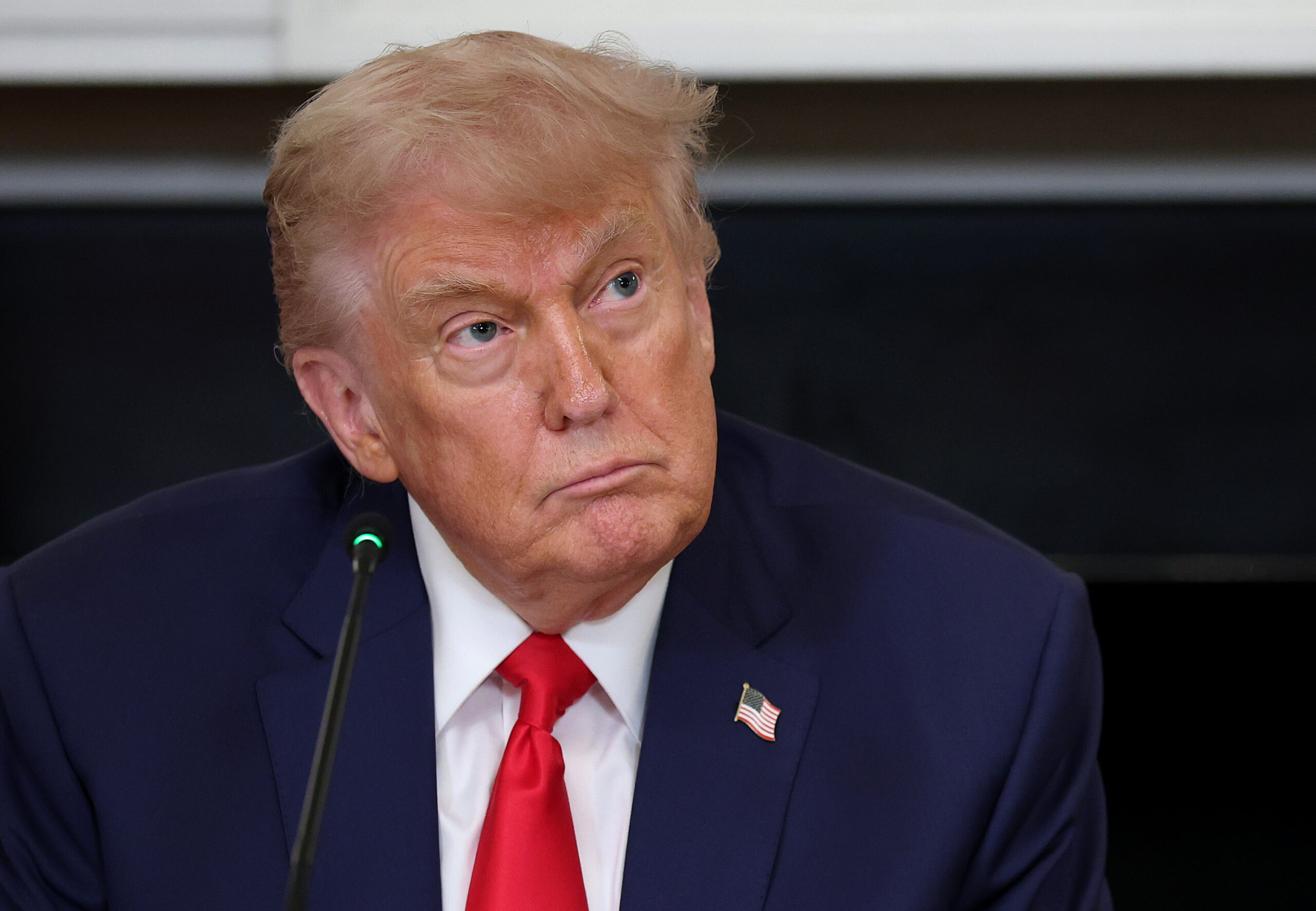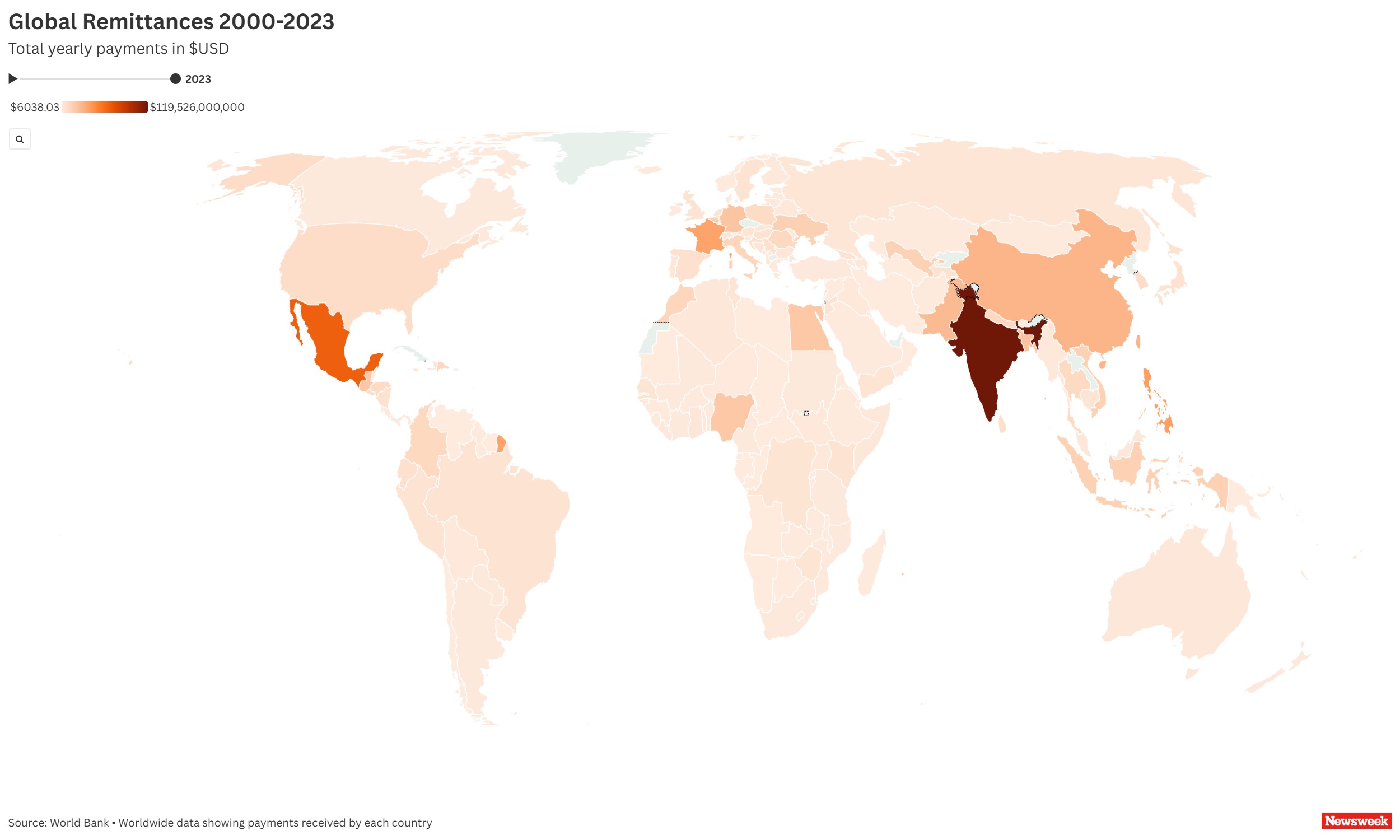
Court documents have revealed new details about the Trump administration’s attempts to transfer the management of the country’s $1.6 trillion student loan portfolio away from the Department of Education.
The documents, submitted to a federal court, showed that the Department of Education had been negotiating a deal with the Treasury to oversee federal student loans, a role historically managed by the department’s Federal Student Aid office.
The plan was put on hold after a federal judge blocked the administration’s broader efforts to dismantle the Department of Education.
Newsweek reached out to the Treasury Department for comment.
Why It Matters
The potential transfer of the federal student loan portfolio, which affects more than 42 million Americans, has significant implications for borrowers, government oversight and loan servicing standards.
With student loan delinquency on the rise and millions of Americans seeing their credit scores hit record lows, the debate over who manages repayment, collections, and borrower protections has reached a new urgency. Court intervention has preserved the Department of Education’s central role for now, but ongoing legal and policy battles could reshape loan management for years.

Win McNamee/Getty Images
What To Know
Under the Trump administration, the Department of Education had been negotiating a memorandum of understanding with the Treasury Department to review student loan management and collections operations, Rachel Oglesby, chief of staff at the agency, confirmed in a late Tuesday court filing.
Nine Education Department employees were set to move from the Federal Student Aid Default Collections Unit to the Treasury to “discuss collections activities,” the Education Department confirmed to Newsweek.
Those plans were halted after U.S. District Judge Myong Joun in Boston ruled last month, ordering the rehiring of more than 1,300 Education Department employees affected by mass layoffs in March and blocking the transfer of loan management to the Small Business Administration (SBA).
The court’s intervention kept existing federal student loan programs under the purview of the Department of Education, restricting the administration from shifting responsibilities to other agencies without congressional approval.
Some experts have said that while the Treasury Department is more experienced than the SBA in managing collections and public funds, shifting federal student loan management would demand legislative action. The Higher Education Act of 1965 stipulates that loan responsibilities are assigned to the Federal Student Aid within the Department of Education.
The Treasury’s 2014-2015 pilot program for collecting defaulted student loans reportedly yielded lower returns than private collection agencies. Proposals to integrate student loan repayments with wage withholding systems have also faced complications due to income-reporting and privacy limitations.
As policy debates continue, the end of the pandemic-era federal loan payment pause contributed to a surge in late payments and defaults.
The Federal Reserve Bank of New York reported that nearly six million borrowers were 90 or more days delinquent or in default between January and March 2025, with many experiencing steep drops in credit scores. These credit impacts may hinder access to mortgages, car loans and other financial products.
What People Are Saying
Madi Biedermann, deputy assistant secretary for communications at the Department of Education, told Newsweek: “The Department of Education signed an Interagency Agreement with the Department of Labor on May 21 regarding administration of certain career, technical, and adult education grants. The Workforce Development Partnership will allow ED and DOL to better coordinate and deliver on workforce development programs and strengthen federal support for our nation’s workforce, a top priority of the Trump Administration.
“This is one of many existing agreements ED has with other agencies to collaborate on services for the American people. As acknowledged in the status report, ED has paused implementing this IAA while we seek relief from the district judge’s preliminary injunction.”
Kevin Thompson, the CEO of 9i Capital Group and the host of the 9innings podcast, told Newsweek: “The Trump administration is largely restricted from making sweeping changes here. Dismantling a federal agency like the Department of Education requires an act of Congress. So while they’ve made noise about shutting it down, the real impact has been around restarting payments and rolling back deferment and forgiveness programs.”
Alex Beene, a financial literacy instructor for the University of Tennessee at Martin, told Newsweek: “The proposal for the Treasury to take over the federal administrative responsibilities for student loans is no surprise, as this was a change largely discussed when the administration started ramping up its planning to shutter parts of the Department of Education. For student loan borrowers, if the plan was ever to take effect, it would more than likely not mark a substantial change to their current payment plans.”
What Happens Next
The status of federal student loan management—and who ultimately oversees the $1.6 trillion portfolio—remains unresolved pending further court action and any potential congressional intervention.
“It would just be the shift from one department overseeing the debt to another. At the same time, this proposal becoming a reality is something that may increasingly not occur,” Beene said. “Disbanding and relocating aspects of the Department of Education would require congressional involvement, and there’s already signs of hesitation to supporting such.”
Borrowers are advised to continue routine payments as legal and policy outcomes develop.





